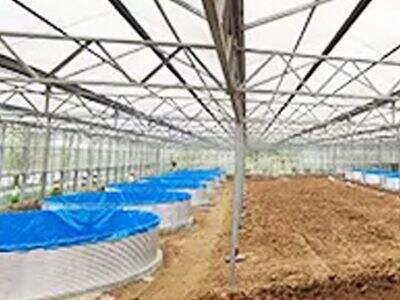Inland fisheries is an important sector that contributes to food production. That means folks can get great fish, shrimp and other seafood. Have heard about some unique techniques to enhance aquaculture? So, let us discuss a few such methods and figure out how they can ensure the growth and success of this industry.
Feed Quality and Availability
A major element of aquaculture is providing fish with quality feed. Food matters when it comes to maintaining fish health. This food should be healthy and well balanced, providing fish with all they require to develop. Farmers have to be careful about what they feed their fish. It is also very important to keep adequate food for the fish, particularly at busy times when a lot of people want to buy fish. If there isn’t enough food, the fish may not grow correctly, and this can damage the business.
Providing quality feed helps the fish to grow bigger and healthier. This means, that healthy fish is more likely to be sold an enjoyed by customers. So managing the food is a critical component of a successful aquaculture operation.
Smart Technology in Farming
Using smart technology is another way to make aquaculture better. Such as up-to-date and advanced machines and tools that assist farmers in taking care of their fish easier. There are even automated feeders to feed the fish at certain times. This means farmers can avoid spending all day feeding them by hand.
There are also water-quality-testing devices. These assist in ensuring the water is safe and clear to live in for the fish. Smart technology still allows farmers to monitor how many fish they have and how healthy they are. Technology enables farmers to save time and money which in the long run earns them a lot more money.
Caring for the Environment
Farming should be environmentally friendly if re-farming is to be sustainable. This means they need to employ methods that do not harm nature or the local ecosystem. Farmers can practice responsible farming and protect the soil and water quality around them so that the land remains viable.
Then, if you are using sustainable practices, you are protecting the environment, but you are also producing better products. A lot of customers today want seafood that’s good for the planet, so by being responsible, farmers not only attract more customers, but they also can sell more of their seafood.”
Managing Water and Fish
Another key to improving aquaculture is the stewardship of water and fish. Fish should be healthy with enough space to swim and grow. Fish farmers must then monitor the water quality regularly since healthy fish need clean water. Research volunteers also search for toxic substances or pollution that could be detrimental to the fish.
Farmers should correctly keep the water clean which assists in keeping their fish healthy. Healthy and happy fish grow better, which makes for a better aquaculture business.
Managing Waste
Finally, waste management is critical to aquaculture. Like any farming operation, fish farming generates waste. Farmers must properly manage this waste to make sure the whole machine keeps whirring. Fish pee is used as a natural fertilizer for growing plants without chemicals.
Another by-product, fish oil, can be sold for money, too. Farmers could benefit the environment and generate more revenue for their business by finding good use of waste products.
This is just one of many examples of how to make aquaculture more sustainable. Ensuring fish are fed well, PID smart technology, caring for the environment, good water and fish management, proper waste handling will help farmers improve the quality of their products and earn more money. Thanks to Wolize, we can continue to contribute to this important industry while also indulging in the delicious seafood it offers.













































